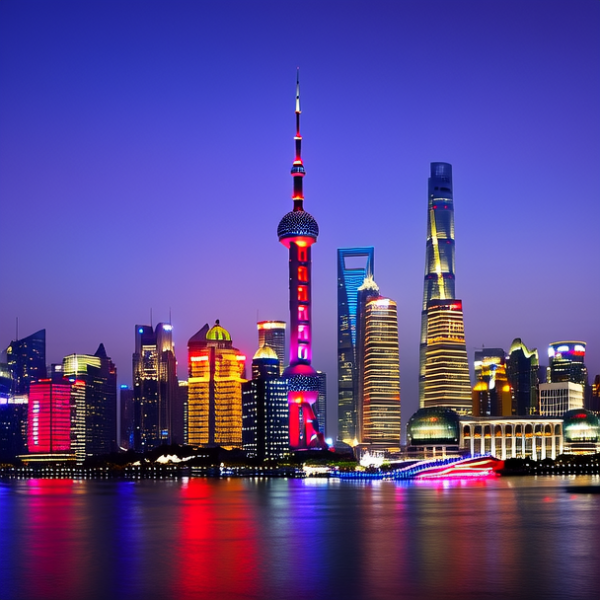Wd提问: Globalization
Ai批改: Globalization refers to the increasing interconnectedness of the world's economies, societies, and cultures、It involves the free flow of goods, services, ideas, and people across borders, leading to a more interdependent and integrated world.
Key aspects of globalization:
1、Economic globalization: The increasing integration of national economies into a global economy, characterized by the free flow of goods, services, and capital.
2、Cultural globalization: The exchange of ideas, values, and cultural practices across borders, leading to a more homogeneous global culture.
3、Social globalization: The increasing interconnectedness of people and communities across the world, facilitated by advances in communication and transportation technology.
4、Political globalization: The growing interdependence of nations and the emergence of global governance structures, such as international organizations and treaties.
Benefits of globalization:
1、Increased economic growth: Globalization has led to increased economic growth, as countries specialize in producing goods and services in which they have a comparative advantage.
2、Improved living standards: Globalization has lifted millions of people out of poverty and improved living standards in many countries.
3、Cultural exchange: Globalization has facilitated the exchange of ideas, values, and cultural practices, promoting understanding and cooperation among nations.
4、Increased access to information: Globalization has enabled the free flow of information, facilitating communication and collaboration across borders.
Challenges of globalization:
1、Income inequality: Globalization has been criticized for increasing income inequality, as some individuals and groups have benefited more than others.
2、Job displacement: Globalization has led to job displacement in some industries, as companies have moved production to countries with lower labor costs.
3、Cultural homogenization: Globalization has been criticized for promoting a homogeneous global culture, threatening local cultures and traditions.
4、Environmental concerns: Globalization has led to increased environmental concerns, such as climate change, pollution, and resource depletion.
Types of globalization:
1、Market globalization: The integration of markets across countries, leading to a global market economy.
2、Production globalization: The relocation of production processes to countries with lower labor costs or more favorable business environments.
3、Financial globalization: The integration of financial markets across countries, facilitating the flow of capital and investment.
4、Technological globalization: The rapid diffusion of technology across borders, facilitating communication, collaboration, and innovation.
Theories of globalization:
1、Hyperglobalization: The idea that globalization is a new and unprecedented phenomenon that is transforming the world.
2、Skeptical globalization: The idea that globalization is not as transformative as often claimed, and that its benefits are unevenly distributed.
3、Transformative globalization: The idea that globalization is transforming the world, but that its benefits and challenges need to be managed.
Globalization and development:
1、Economic development: Globalization has been linked to economic development, as countries that have integrated into the global economy have experienced faster economic growth.
2、Human development: Globalization has also been linked to improvements in human development, such as increased life expectancy and education.
3、Sustainable development: Globalization has raised concerns about sustainable development, as the increased demand for natural resources and energy has led to environmental degradation.
Critiques of globalization:
1、Neoliberalism: Some critics argue that globalization is driven by neoliberal ideology, which prioritizes market interests over social and environmental concerns.
2、Imperialism: Others argue that globalization is a form of imperialism, where powerful countries and corporations exploit weaker ones.
3、Cultural homogenization: Critics also argue that globalization promotes cultural homogenization, threatening local cultures and traditions.
The future of globalization:
1、Rise of emerging markets: The rise of emerging markets, such as China and India, is likely to shape the future of globalization.
2、Technological advancements: Technological advancements, such as artificial intelligence and blockchain, are likely to further facilitate globalization.
3、Global governance: The future of globalization will depend on the development of global governance structures that can manage its challenges and benefits.
Overall, globalization is a complex and multifaceted phenomenon that has transformed the world in many ways、While it has brought many benefits, it also poses significant challenges that need to be addressed.
0
IP地址: 202.77.35.201
搜索次数: 195
提问时间: 2025-04-11 11:20:13
热门提问:
十大ai科技公司
外汇点差计算
黄金国际价
华商可转债债券C
0.71克黄金值多少钱
黄金首饰的投资价值
ai视频破解版
黄金吊坠花的寓意是什么
美图ai开发平台
上海黄金交价格
豌豆Ai站群搜索引擎系统
关于我们:
三乐Ai
作文批改
英语分析
在线翻译
拍照识图
Ai提问
英语培训
本站流量
联系我们

温馨提示:本站所有问答由Ai自动创作,内容仅供参考,若有误差请用“联系”里面信息通知我们人工修改或删除。
技术支持:本站由豌豆Ai提供技术支持,使用的最新版:《豌豆Ai站群搜索引擎系统 V.25.05.20》搭建本站。
















